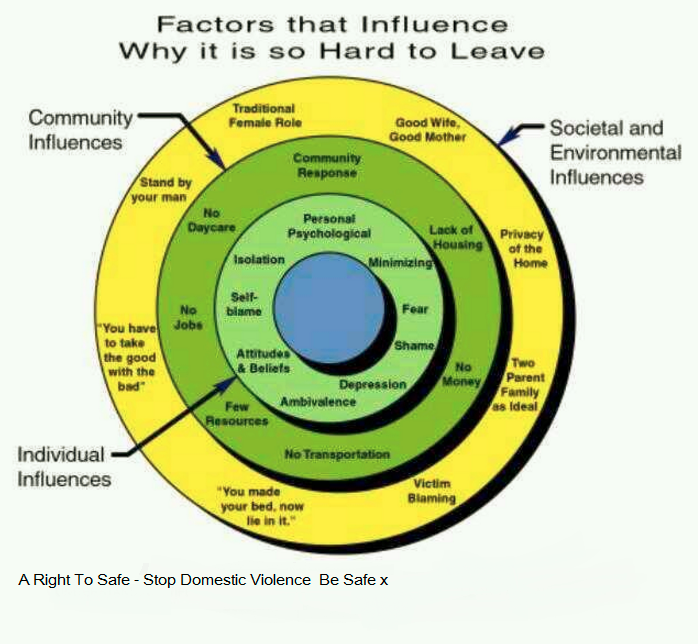 Recently I heard from a lady who is in a difficult relationship. She has been verbally abused by her partner for some time, but lately that abuse has become physical violence. She doesn’t have any family close by and is unsure whether she should stay, or risk leaving without a definite place to go to. In this situation, should a woman stay or go? On the face of it, the answer is simple, she should get out. However, people who have been in abusive relationships know that it is often not that easy. There are financial and emotional factors that hold you together, and quite often there are children, property, family and social ties that convince you it is worth hanging in there and giving it another chance. It might also feel shameful to admit the truth of what is going on in your relationship, or maybe you believe on some level that you have contributed to the violent behavior you are experiencing. You may also think that your partner still loves you and doesn’t mean to hurt you. And what if there are children that you don’t want to disrupt, or pets that you don’t want to leave behind, or maybe you don’t live anywhere near a domestic shelter and don’t have anyone that might take you in if you can’t afford a place of your own? I have seen women going through these dilemmas time and again. Unfortunately, when you are living overseas the situation can be even more complicated as your family and close friends are in another country, and taking children with you can cause all kinds of legal and custody disputes, which the woman might not be financially equipped to fight. The following illustrates some of the reasons why women stay in violent and abusive relationships: From: https://sites.google.com/site/aright2bsafe/ So, in our case example, should she stay or should she go? Here are some important things to keep in mind:
Here are some websites that might prove helpful if you, or someone you know, is in this situation: https://domesticviolenceuk.org/ http://www.lost-in-france.com/living-in-france/life/190-domestic-violence https://www.womenshealth.gov/violence-against-women/types-of-violence/domestic-intimate-partner-violence.html https://helpguide.org/articles/abuse/domestic-violence-and-abuse.htm Dr Jules If the subject matter in this article resonates with you, then counselling might be a good option to help you to move forward. I offer a free 20-minute consultation so we can explore how I might be able to help you.
1 Comment
Often in my practice, and especially when working with couples, I see anger that is out of control. In relationships, this can quickly spiral into verbal or physical abuse. While anger is a normal emotion, it needs to be expressed in healthy ways and regulated. Traditional anger management techniques have focused on beating a pillow or yelling when you are alone, but we all need help to develop a deeper understanding of this emotion and effective ways of managing it.
Anger is basically just too much stress or distress – from memories, what’s going on around you, or what’s said to you. It is a complex emotion that signals we are feeling threatened, wronged, afraid. It is however, a normal emotion and can have its uses when expressed appropriately and within safe limits. When anger isn’t regulated it can accelerate into criticism, name calling, shouting, throwing things, and at worst, threatening or hurting another person physically. This is when anger turns into abuse and violence, and it is never acceptable. Remember that you can never trust your own judgement when you are angry. Anger is at its core, part of our fight or flight stress response that enabled us to get away or deal with danger and threat. As infants, it also helps us get our needs met, for example if we aren’t getting fed or picked up and cuddled when we want to. The ability to develop self-control, however, is one of the things that separates humans as a species. Our brain has the capacity to process what is going on, regulate strong emotions and then rationalize our response, but anger inhibits that activity. As we mature we learn to subdue our impulses in order to evaluate our options and consider the best course of behavior to get what we want. If you grew up in an angry family, or struggled to get your needs met, then maybe you didn’t learn good impulse control habits, but it is never too late. Anger is a signal, it is telling us that we need to calm down, review what is pushing our buttons and take control of our behavior. When we don’t we can find our work, our relationships and our self-image begin to suffer. Nobody likes to be around someone who is quick to flare up and display their temper on a frequent basis. So, if you find yourself losing control to anger, here are some tips to help:
If the subject matter in this article resonates with you, then counselling might be a good option to help you to move forward. I offer a free 20-minute consultation so we can explore how I might be able to help you. This article was also published on English Informer In France |
Categories
All
Archives
July 2020
|
